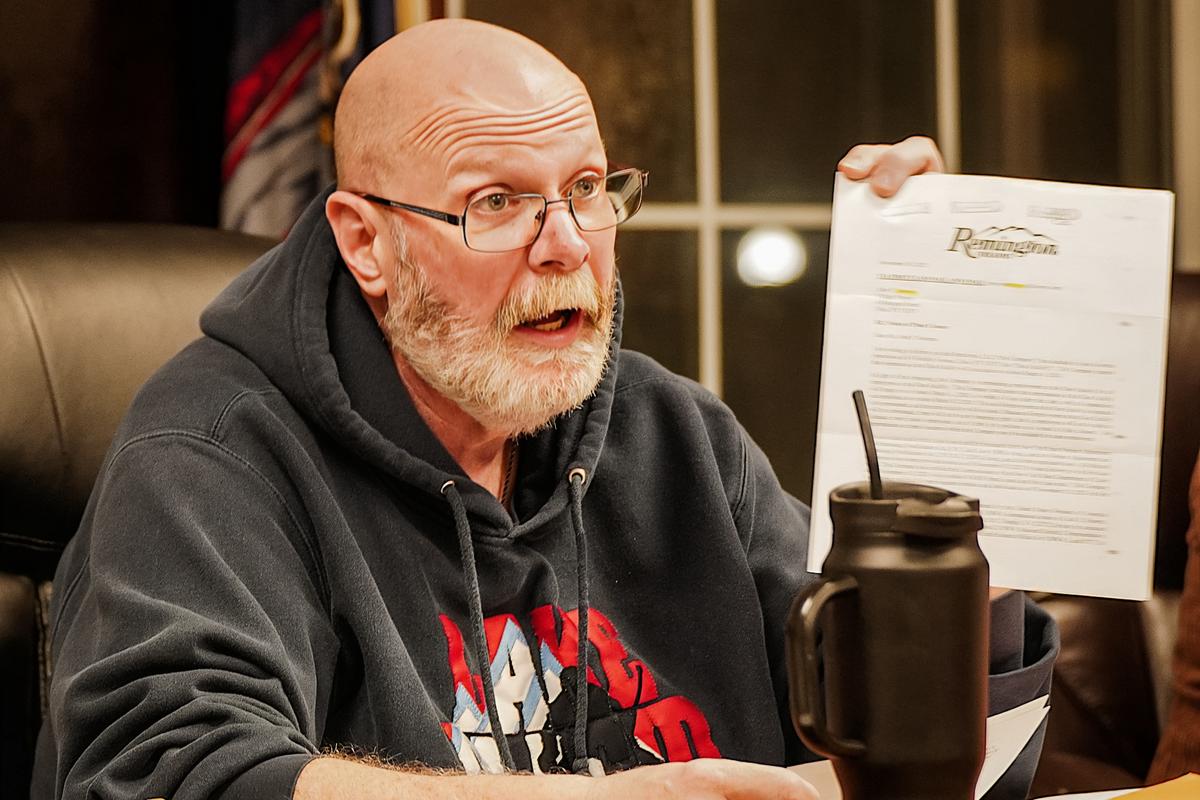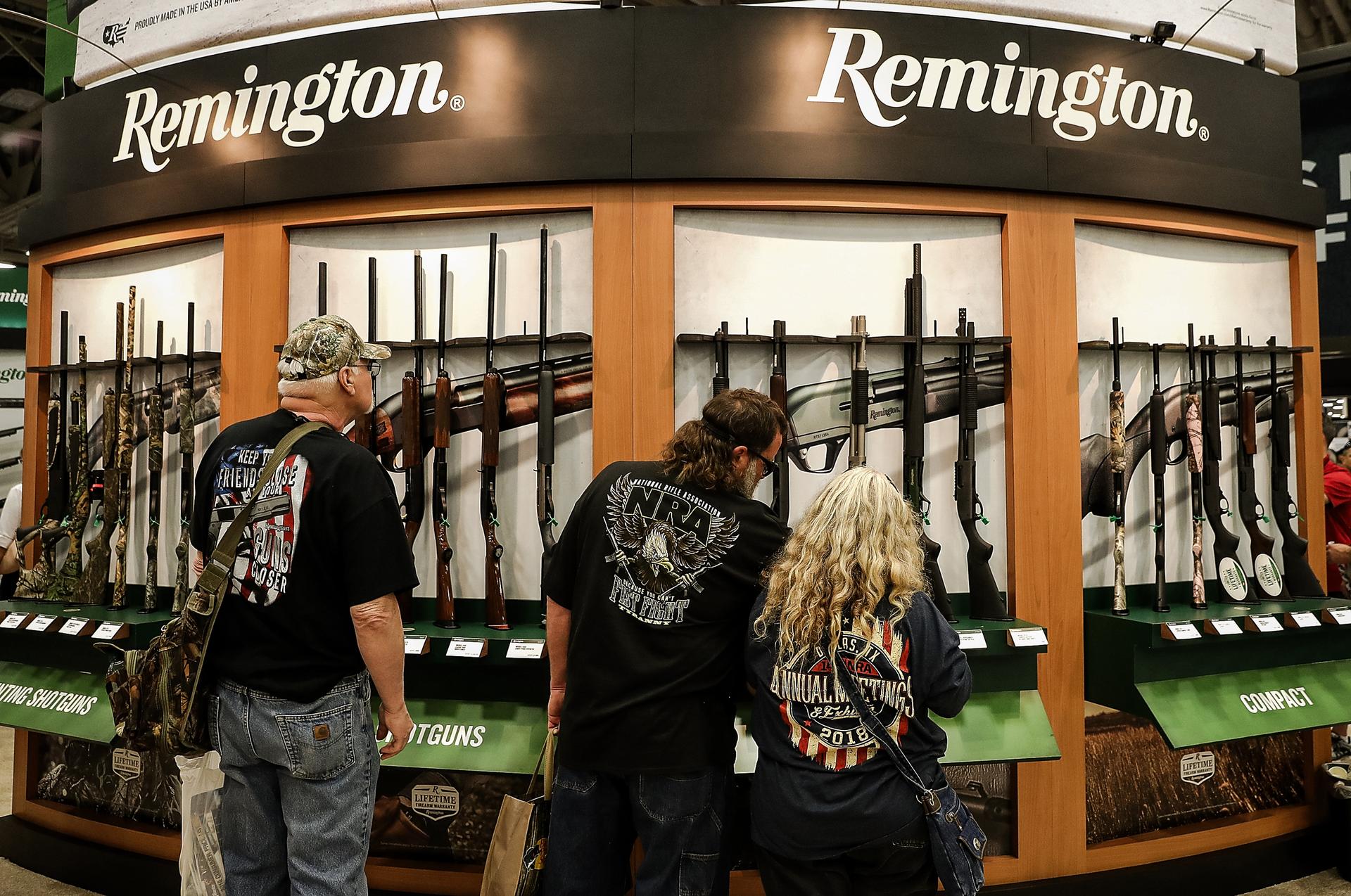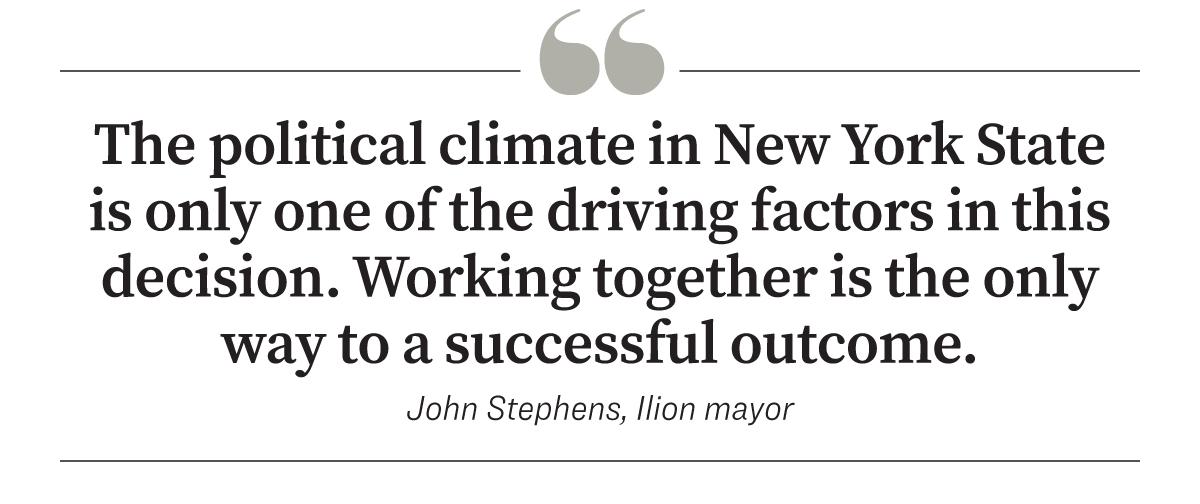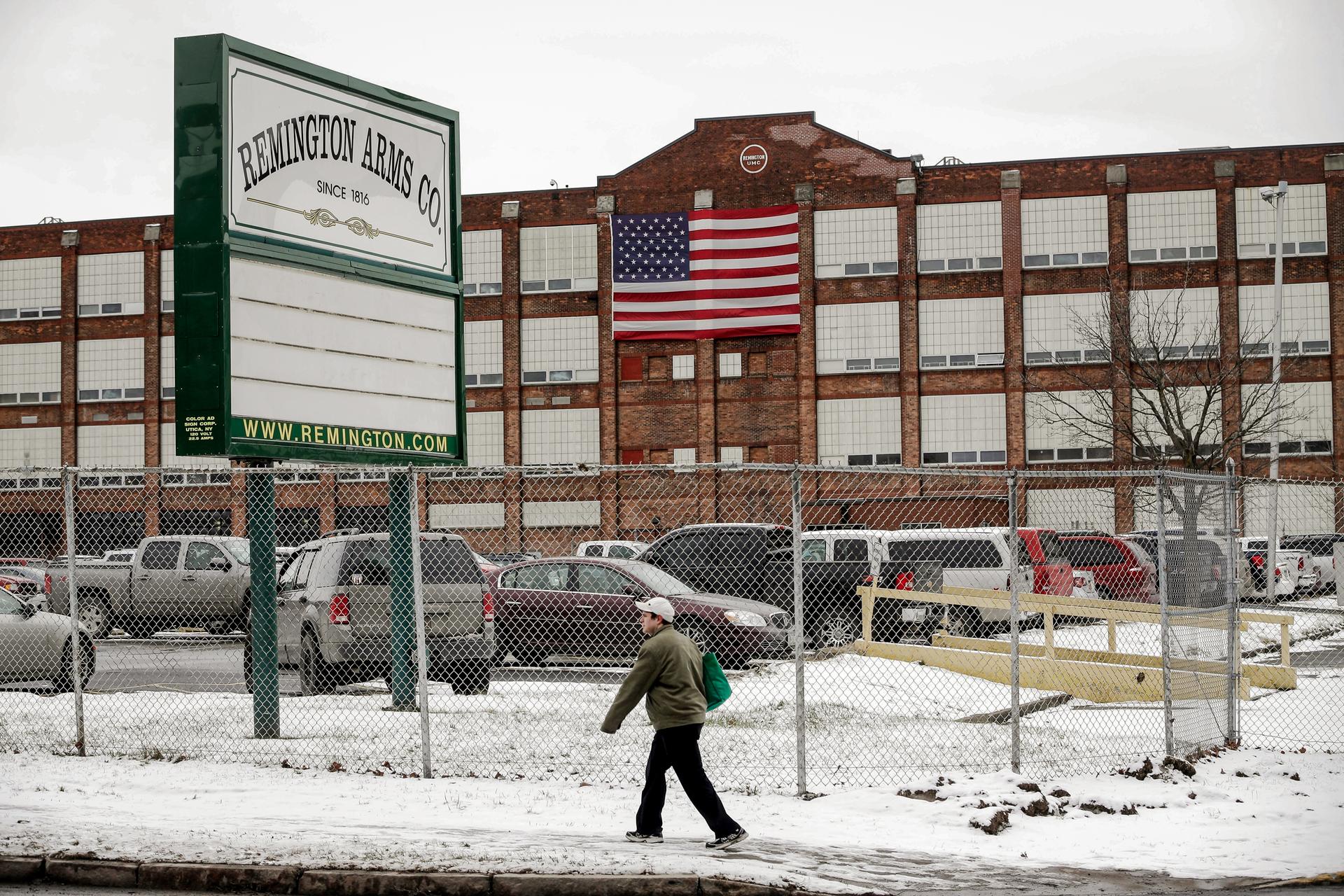ILION, N.Y.—In the village of Ilion, New York, 80 miles west of the state capital in Albany, residents are mourning the departure of gunmaker Remington Arms Co. after two centuries of continuous operation.
Without fanfare, the company announced last month that the manufacturing plant would be closing its doors on March 4, 2024.
“I feel like a family member has died,” Ilion Mayor John Stephens told The Epoch Times. “My dad raised four kids on a paycheck from there for 37 years. He walked to work and carried his lunch every day.”
Mr. Stephens said no one expected the announcement a week after Thanksgiving that the plant was set to close.
On Nov. 30, at 3:26 p.m., the company notified village officials of the decision by email. The message noted that “all separations” with the village would be completed by March 18, 2024.
Likewise, the company notified its 270 employees that they would soon be out of a job.

“They brought the second and third shifts in and said they were done,” Mr. Stephens said. “They notified the first shift in person. I found out through the media. The owner’s group didn’t even contact me.”
Mr. Stephens said the company made the announcement just five months into a newly ratified employee union contract.
“To say we were shocked [by the announcement] is probably an understatement,” the mayor told Ilion’s Village Board of Trustees at a public meeting on Dec. 11.

“In my opinion, it’s unfortunate and extremely unprofessional.”
Remington Arms didn’t return messages from The Epoch Times asking for comment.
Publicly, the company attributed the plant closure in part to a hostile political climate in Albany regarding firearms production.
“I am writing to inform you that RemArms LLC has decided to close its entire operation at 14 Hoefler Avenue, NY 13357,” Remington Arms said in a letter to employees. “The company expects that operations at the Ilion facility will conclude on or about March 4, 2024.”
The Georgia-based company said it would continue to make firearms at its facility in Huntsville, Alabama, which opened in 2014, a year after New York’s passage of the Safe Act, which created stricter gun laws.
The anti-gun political climate in Democrat-controlled Massachusetts prompted competitor Smith & Wesson to move from its longtime base in Springfield to Maryville, Tennessee. The company announced the opening of its new headquarters there in October.
In Ilion, the community reaction to the Remington plant closure has been a sense of loss and bewilderment, Mr. Stephens said.
Many are wondering what will become of the 10,000-square-foot plant and the village’s Remington identity.
Mr. Stephens said residents see the two as synonymous, interwoven by history, culture, and economics.
“Remington is Ilion—Ilion is Remington,” residents here like to say.
Eric Kennedy, who runs the Copper Cafe in the downtown village retail plaza, believes the ripple effect of the closure would impact the businesses that served Remington employees for years to come.

“I’m sure it will affect us. Any time you lose jobs, it affects the area’s economy. It definitely will hurt the economy—small town, big business in the village. It’s going to hurt a lot of families,” Mr. Kennedy told The Epoch Times.
“New York state is not friendly to hunters and sportsmen. That makes a big impact. I don’t blame [Remington] for moving out of state, [but] it’s going to hurt.”
Until recently, Remington Arms employed about 1,500 workers, whose wages helped support the local retail economy, said village public historian Mike Disotelle.
“At noontime, when the employees would go to lunch, there would be a flood of factory employees going to local businesses,” he said.
Mr. Disotelle said Remington Arms was one of the village’s largest employers and a centerpiece of the downtown economy. This remained true even as the village continued to lose residents over the course of several decades, he said.
In 1960, the village had 10,000 residents. Today, that number is down to about 7,700 and could drop below 6,500 by 2030 due to the slow economy, high taxes, and limited housing availability, Mr. Disotelle said.

Village officials said Remington Arms’ departure would cost the village nearly $1 million in yearly revenues.
Mr. Disotelle said the village would need a “savior” to breathe new life into the facility. A federal gun manufacturing operation is one possibility.
“You’re always going to need to manufacture firearms,” he said. “The problem is New York state has created unfriendly legislation. The taxes are high. That’s why a lot of people have pulled out. We’re not a business-friendly state anymore.
“It would be nice if our politicians could get something going.”
Founded by Eliphalet Remington II in 1816, the family-run business was known as E. Remington and Sons before the sporting goods chain Marcus Hartley and Partners in Connecticut purchased the gunmaker in 1888.
“It was called a receivership,” Mr. Disotelle said of the acquisition by Marcus Hartley. “Technically, it was a bankruptcy. Not many people know about that. They know of the bankruptcies in recent years.”
Remington sold the company to chemical manufacturer Dupont in 1933. The New York investment company Clayton, Dubilier, and Rice purchased the company from Dupont half a century later.
The gunmaker continued to change hands despite the successful introduction of new products and millions in accumulated debt.
In June 2007, private equity firm Cerberus Capital Management acquired the Ilion manufacturing plant for $700 million. By 2012, despite a favorable climate for gun makers, Remington Firearms owed about $800 million to its creditors.

Remington Firearms filed for bankruptcy protection in 2018, filing again in 2020 before selling off the Ilian plant and its assets to the Roundhill Group, operating as Remington Arms (RemArms), a private holding firm.
“These companies are just out there to invest. They are not companies taking on Remington as a compliment to their company,” Mr. Disotelle said. “They have no vested interest in what Remington actually did. It was a sign of the beginning of the end [for the Ilion plant].
“That’s how I look at it with Remington: The investment could be doing better. You unload it somehow. They saddled this huge debt onto Remington.”
The loss of 270 jobs, municipal revenues, and a shared feeling of community identity—these are things “you just can’t take lightly,” Mr. Disotelle said.
“That’s what I mean by these investment companies. They didn’t look at the historical aspect of it,” he said.
Critics of New York’s restrictive gun laws argued that they worked against manufacturing companies such as Remington, which threatened to leave the state following the passage of the Safe Act in 2013.
The company would suffer a loss in sales volume and a tarnished brand name following the 2012 Sandy Hook Elementary School shooting in Newtown, Connecticut.
Investigators said the assailant, Adam Lanza, 26, gunned down 20 children and six adults using a Remington Bushmaster AR-15 rifle.
The tragedy sparked a wrongful death lawsuit in which the families of nine victims and a teacher who survived the shooting linked Remington to the tragedy as the gun’s manufacturer.
In February 2022, Remington settled the case for $73 million.

Mr. Disotelle views the legal settlement as a nail in Remington’s coffin.
“I think it goes much deeper. I’d say the last 30 years, it was a process” in corporate decline. “Of course, Sandy Hook did not help,” he said.
Remington experienced additional losses in staff and revenues with the temporary closing of the Ilion plant during the COVID-19 outbreak.
Mr. Disotelle said he foresees a continued exodus of residents from the village as former Remington workers search elsewhere for employment.
“You’ve got 270 people losing their jobs. You’ll probably see many of them try out the new places in the town of Frankfort just off of Route 5S or Little Falls 10 miles east,” he said.
“I would see the population continue to decrease. What you see in the village now—that’s not how the village always looked. It was really a bustling village—not only did we have Remington Arms, we had a typewriter manufacturer. It started as Remington Typewriter and became Remington Standard Typewriter.”
An urban renewal project from 1968 to 1972 saw many of Ilion’s aging buildings replaced with pedestrian malls, plazas, and off-street parking. Still, the village’s population has been in continual decline.

“The housing market is not viable,” Mr. Disotelle said. “What’s concerning, though, is that in the last 60 years, Ilion’s population has gone down dramatically. It peaked in 1960 at a little over 10,000. We’re now down to about 7,500.”
Dan Sheffield, a life-long Ilion resident whose grandfather was a village trustee, expressed his “bitter disappointment” with Remington’s announced departure at the Dec. 11 village trustees meeting.

“As a resident, the news of the closure of the Ilion Remington plant after two centuries of continuous operation felt like the death of a loved one after a long illness,” he said.
“After the death, the loved one is still loved and respected, however. We all love Remington—if not what it is now, what it was then.
“We need to brainstorm and have, in a sense, an Ilion think-tank to get through this. I think a lot of voices need to be heard.”
Mayor Stephens said he’s optimistic about the village’s economic future, though Remington’s departure “will hurt.”
He said the village stands to lose $926,000 in yearly property taxes and other revenues.
“If we tried to cover that with a tax increase, it would be a 31 percent tax increase,” which would translate into $700 more per year on a home value assessment of $75,000, Mr. Stephens said.
“This is the worst-case scenario—and I am fully confident this will not occur. That’s what we are up against and have to work on,” the mayor said.

Addressing the village board, the mayor acknowledged the difficulties that former Remington employees would face finding work.
“No company is going to find or hire the workforce we have in this region. The skill set, knowledge, and expertise is what made this company successful,” he said.
“This is a business decision. We are not part of that decision. I don’t think Remington Arms considered the move lightly. Part of it was due to the poor political climate towards gun manufacturing in New York state and the Northeast and the inefficiencies in the current facility.
“Many in Albany received what they wanted, and that’s poor representation.”

At the meeting, the mayor announced plans to form a task force of elected officials and community members to find a new purpose for the factory building.
“As a kid who was raised on a Remington paycheck, it will be one of the worst experiences to see those doors close, the parking lot empty, and there will no longer be a sign out front that says, ‘Remington—America’s oldest gun maker,'” Mr. Stephens said, his voice choked with emotion.
“Let me be clear. This is an Ilion concern, first and foremost. But it’s imperative we receive assistance from higher-up elected officials. We need to work together and place all politics aside. The political climate in New York state is only one of the driving factors in this decision. Working together is the only way to a successful outcome.”
Only time will tell, he said.
“There’s always a Plan A, B, and C,” Mr. Stephens said. “Plan A was never to have them leave. Well, that plan’s obviously gone.”


